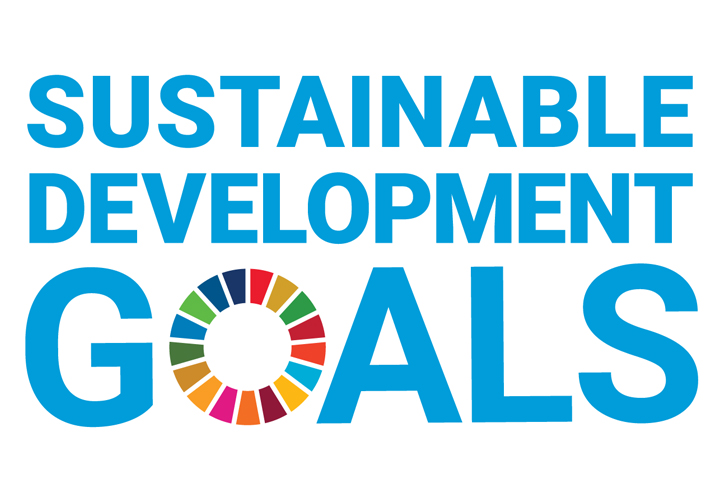College of Arts and Sciences Newsroom

UD students contribute to high-level U.N. report
By Dave Larsen
A high-level United Nations-supported Global Alliance report presented in July to U.N. member states included research conducted during the 2019 spring semester by six University of Dayton international studies majors as part of their senior capstone course.
The report, Enabling the implementation of the 2030 Agenda through SDG 16+: Anchoring peace, justice and inclusion, was prepared for the High-Level Political Forum, July 9-18, at U.N. headquarters in New York City.
It was a collective effort by the Global Alliance Secretariat members, including the United Nations Office of Drugs and Crime, United Nations Women, United Nations Commissioner for Refugees, Office of the High Commissioner for Human Rights, and United Nations Educational Social and Cultural Organization coordinated by the U.N. Development Programme’s Oslo Governance Center.
The report included a review of progress made on the fulfilment of Sustainable Development Goal 16 indicators. Adopted in 2015 by all U.N. member states, the Sustainable Development Goals (SDG) are a collection of 17 global goals for the year 2030 to promote prosperity while protecting the environment.
The students received work packages that tasked them with reviewing and summarizing existing analyses of progress on SDG 16 — Peace, Justice and Inclusive Institutions — using reports produced by governmental, intergovernmental and civil society organizations. They also were tasked with analyzing how global citizens across five regions prioritize and demand action on SDG 16 targets, in relation to the maturity of democracy and the level of development they enjoy.
“Overall, this capstone often felt more like a job assignment than a class project,” said Ellie Rizzo ’19, who graduated in May with degrees in international studies and mathematics. “The report had a destination farther than our professor’s desk, and while stressful at times, this motivated each of us to do the most effective work possible. By the second and third work packages, we had a stronger idea of the objective and were able to substantially contribute to the U.N.DP report.”
Rizzo, who now works in Chicago providing support to adults with disabilities, was acknowledged in the report for her work, along with fellow May graduates Guisela Crespo, Hannah Donovan, Nadia Pestell, Danny Pospiech and Yohaiza Vega. The students worked under the direction of Christopher Agnew, international studies program director and associate professor of history, and Shelley Inglis, University of Dayton Human Rights Center executive director.
Agnew met with Inglis in fall 2018 about turning the international studies capstone into a “task force” format in which students would respond to a charge given to them by an external agent. He based the model on one used at the University of Washington’s Henry M. Jackson School of International Studies, where he received his doctorate.
Inglis, who came to the Human Rights Center (HRC) from the U.N. Development Programme, spoke with the editorial team for the SDG 16+ report, whose production coincided with the spring semester capstone course.
“This is where the HRC can really expand through our partnerships of providing high-quality, student-led and faculty oversight to practical, policy-relevant research that can be used by our partners in the advocacy and promotion,” Inglis said. “This is really an example of that kind of approach. We’re not coming up with a stand-alone paper that we ask everyone to read, but rather, we’re feeding into a broader agenda.”
Students spoke with U.N. colleagues from around the globe via video conferencing. They conducted research under the pressure of real-world deadlines imposed by the report’s lead writer. They also faced the challenge of working with incomplete data from some developing areas. In addition, they had to use their analytical skills to draw conclusions because there was no textbook or answer key.
“The project broadened my understanding of how research and methodologies are carried out on a large scale, and highlighted both the strengths and weaknesses of the systems,” said Hannah Donovan ’19, who now works on the economic growth team at Palladium, an international development firm in Washington, D.C. She spoke about the project in July at a University alumni event in New York City that focused on human rights and sustainability.
The report found political and financial investment is needed to accelerate progress on SDG 16+; implementation of SDG 16+ requires a “whole of government” and a “whole of society” approach; and SDG 16+ is instrumental in protecting fundamental freedoms and ensuring no one is left behind.
“The report was very well received and continues to be so,” said Alexandra Wilde, senior research and policy advisor at the Oslo Governance Center, who is a former colleague of Inglis. “The feedback has been extremely positive and from all corners — other agencies, member states, the major players in the Goal 16 community at global and regional levels. It’s considered to be very comprehensive, informative, authoritative and accessible. The trends across the targets and key findings helped to reinforce and go deeper than other related reports including the secretary-general’s report but also the Global Sustainable Development Report.”
The HRC and international studies program are continuing their collaboration during the fall 2019 semester. Currently, a new group of international studies majors are working to produce research for Counterpart International, a Washington, D.C.-based non-governmental organization. Counterpart President and CEO Ann Hudock ’90 holds a bachelor’s degree in English and a master’s in international affairs from the University of Dayton.
The HRC established the partnership and the results will be featured on both Counterpart’s and the center’s websites.
“The students this fall have been asked to work on research that will help Counterpart develop strategies for promoting the effectiveness of civil society organizations in contexts where their operations are increasingly restricted by resources, repressive policies or other social factors,” Agnew said. “I hope this kind of thing continues. We’re excited about the model.”
For more information, please visit the websites for the international studies program and the Human Rights Center.
To read the report, please visit the SDG 16+ report website.
